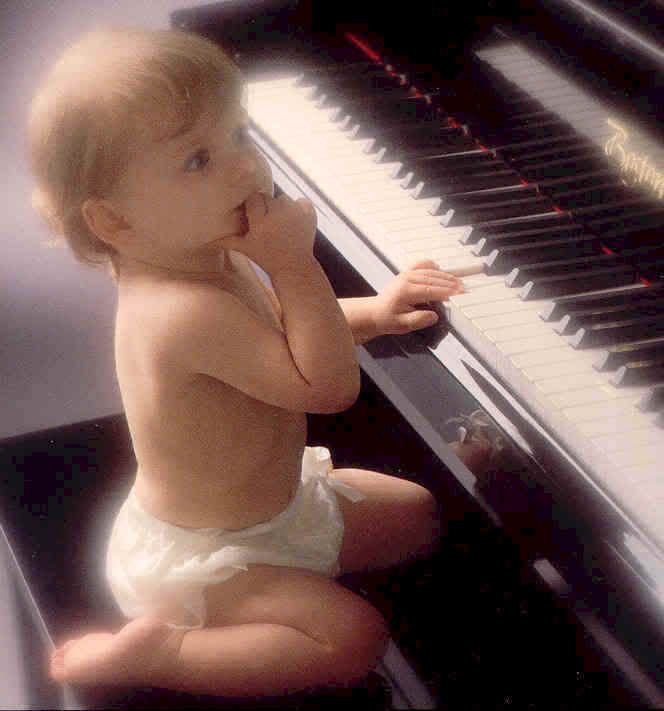Classical Music and Brain Development of Babies

In Indonesia we have a unique musical identity, Yes Dangdut music. Dangdut music presented since so long ago as the popular entertainment for an ordinary people. However, at this time dangdut music industry even able to overcome the popularity of foreign music industry.
But now we'll not discuss about the existence of Dangdut music in our country. Maybe in other occasion we'll dig about it deeper.
There might be different views as regards music but one fact cannot be ignored that it has a great effect on our emotions. When a child takes birth, it starts reacting to the various sounds in its surroundings such as toys, human voice and others. At times, when you see someone shouting or screaming with joy, it simultaneously affects you and fills you with joy.
Now, scientists have proved that music also effected in the development of human brain too. When a new baby is born, it has billion of brain cells, over times these cells grow stronger. It has been proved that children who grow up listening music have strong music connections. It affects the way of our thinking, for example, listening to classical music improves our spatial reasoning and if we are learning by playing with an instrument, it has effect on certain thinking skills.
The Children that since the earlier age used to listen musics will have a better intelligence and emotional quotient developmet, rather then children who rarely listen to music. The music here is music that has a regular rhythm and pitched tone, not an 'awry' tone. Discipline Level of the children that often listening to music also better than children who rarely listen to music.
Classical music composition that contains the tone fluctuates between high and low tones by itself will stimulate the brain in the C quadrant. Until the age of 4 years, quadrant B and C in the brain of children will develop up to 80 percent with the music.
Is it true that music makes one smarter?
Not all the times because music controls some cells of the brain for a particular way of thinking. After listening to classical music, one can quickly perform some spatial tasks such as adults can quickly solve jigsaw puzzle. This is because the classical music pathways are similar to the pathways used in spatial reasoning. Listening to classical music, these pathways are "turned on" and are ready to be used. This is how we can solve puzzle quickly but lasts for a short time after listening to music. Playing an instrument also improves the spatial skills as research has proved that music training creates new pathways in the brain.
Use of classical music
The structure of classical music is much complex as compared to rock, jazz or pop. Child who listens to classical music easily picks out the structure and recognizes any classical music he has heard before. Therefore, listening to classical music has a different effect as compared to other forms of music.
How to nurture your child with music?
You can easily help your child to build his love for music by playing music for your child, singing to your baby, start taking early music lessons, sing with your child or help your child to learn music education at the school.

0 comments:
Post a Comment